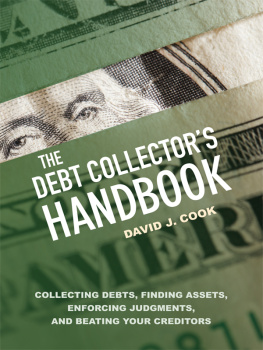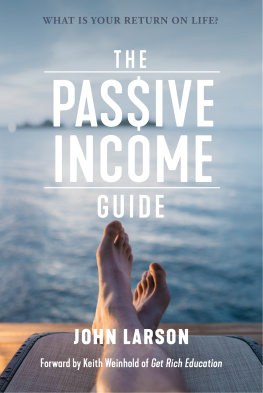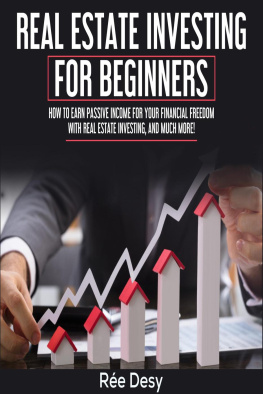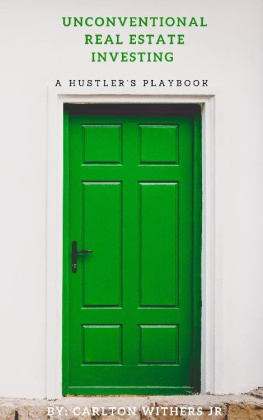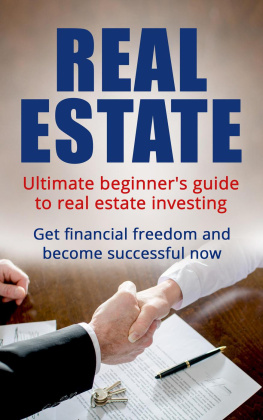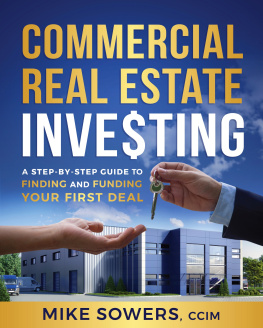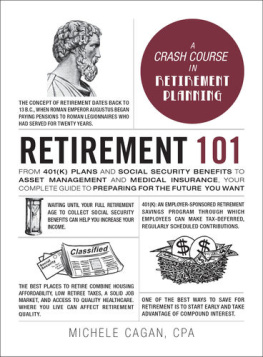Text copyright 2016 Sean Cook
All rights reserved
To my family, friends, and colleagues, with appreciation for your input and support of this project.
Table of Contents
Preface
My father was very sure about certain matters pertaining to the universe. To him, all good things trout as well as eternal salvation come by grace and grace comes by art and art does not come easy. A river runs through it Norman MacLean
When the time came to inform investors of the impending calamity, I sat down under the plasma TV on the maple credenza at the end of the long conference room. It was standing room only, packed with employees, many of whom had as much or more at stake than our investors. Eyes were trained on the carpet rather than the black conference phone, which was filled with investors and sat alone in the middle of the conference table. No notes were taken, no blackberries checked, no weekend plans discussed. The only voice was the chairmans, as he explained reality to the phone, and by extension to the rest of the room. Thus commenced the formerly venerable companys slow motion implosion; a series of events that took it from the front page of the Wall Street Journal to a footnote in the resumes of former employees and a capital loss on the tax returns of its investors. Thus also commenced my true appreciation of the complexity of the real estate business.
Good times also abound in the real estate business of course. While that odious moment on the credenza will remain forever in my memory, there are plenty of pleasant memories to accompany it. Great colleagues, fantastic investments, putting contests in the hallway, introvert-torturing conferences, late nights of proofreading, many trips on Southwest Airlines, and the gratification of watching properties slow motion transformation into something more beautiful for residents, tenants, and their neighborhoods. The real estate investment business is an endlessly fascinating and addictive pastime, which is probably why it has such broad appeal.
As an industry participant, Im often asked to opine on deals in which friends or acquaintances are considering an investment. Going through other companies offerings is entertaining market research and helpful as I think about the appeal of my deals to potential investors. I try to offer my candid opinions, which are sometimes positive and sometimes less so. Like many real estate investors, my friends are real estate hobbyists; experts in other more useful industries. They look to real estate as a way to generate some additional income, diversify their existing investment portfolio, and for some entertainment (although few like to admit it). I started looking for a simple resource or book that I could recommend to provide some more general guidance about how to make these investments. Surprisingly, despite the size of the private equity real estate industry, I struggled to find a good handbook for investors in private partnerships and funds. Many resources are mind-numbingly boring, overly technical, or focused on making direct real estate investments; a strategy I dont think is advisable for most non-professional investors. The impetus of this book is to provide readers with this summary of the basic tools needed to evaluate and make private real estate investments. Along the way, I share some personal observations about the actual mechanics of the industry along with a few thoughts on more active joint-venture arrangements, crowdfunding, and other special cases. I hope this provides a practical summary of the real estate investment business and a solid framework to create and execute your own unique real estate investment strategy whether you are a property neophyte or a seasoned expert.
There is a common misconception that the way to make money in real estate is by doing it yourself. Consider the blizzard of purportedly educational books and courses on real estate. Most of them are get-rich-quick gimmicks trying to sell a dream of flipping houses with no money down, or building a commercial real estate empire from scratch. Go ahead type real estate investment or something similar into your favorite search engine and see what comes up. Sleaze!
Im not sure what it is about the real estate industry that causes people to shy away from hiring professionals. In this case, hiring a professional means investing through companies who specialize in a real estate strategy and earn a fee for their services. Would you build your own toaster? Write your own operating system? Perform your own root canal? We embrace specialization nearly everywhere else in our economy and real estate need be no different.
Can you make millions in real estate without expertise? Perhaps, but you can lose it too. Unfortunately, there have been enough real estate entrepreneurs who bootstrapped their way to success to make the dream appear almost within reach, but the reality for most first-time investors is harsh. The invest-for-yourself hucksters do the industry a disservice by convincing people to take enormous risk in a competitive businesses where they have minimal expertise. This is a recipe for disaster, and it has fostered an environment where too many people who have recognized the legitimate benefits of a private real estate investment allocation try to go it alone and end up losing money and many nights of sleep for avoidable reasons.
If you are looking for a get-rich-quick book telling you how to put no money down and deal-flip your way to millions in riches, or if you want a magic recipe for real estate investing that cant lose, save yourself some time and look elsewhere this is not the book for you. Although for some large and experienced investors it makes sense to source, purchase, improve, and manage their own real estate investment portfolio, the majority of investors would be better served by the more passive and diversified approach discussed herein.
Heres why:
Regardless of what many scam artists will have you believe, real estate is a complicated and nuanced business that takes years of experience and painful lessons learned before you begin to not suck. You might spend a lifetime pursuing mastery of a single asset class, let alone the entire industry. Being 95% expert is not enough. Little oversights can cost big money.
Specialist operators cover every potential transaction within their area of expertise and have the market knowledge to identify and execute on only what they deem to be the best opportunities. Logical evaluation is not enough to make good investment decisions. Commercial real estate can be very illiquid, so this market knowledge and historical context is necessary to understand how an opportunity prices in comparison with the rest of the market. The process of tracking and bidding on comps is critical to being able to buy right.
A failed transaction can cost sellers significant money, so a strong industry reputation is critical to both controlling deals and getting an attractive price. This credibility takes years to build through successful transactions and ongoing industry relationships. Without it, the only way to get deals is to over-pay.
Operating commercial real estate, like any business, isnt all (or even mostly) glamor. The daily reality is a time sucking, thankless endeavor. If you have a day job or are enjoying your retirement, think twice before taking on a project that can involve phone calls at all hours of the day and night. On the other hand, if youre bored and looking for a hobby to entertain yourself or a second career, perhaps this is just what youre looking for!
Property management and investment operations are significantly improved (or simply more efficient) when done with scale. Few private owners have the wherewithal to build a diversified portfolio with enough scale to be truly efficient and large enough to benefit from negotiating power in the industry.




